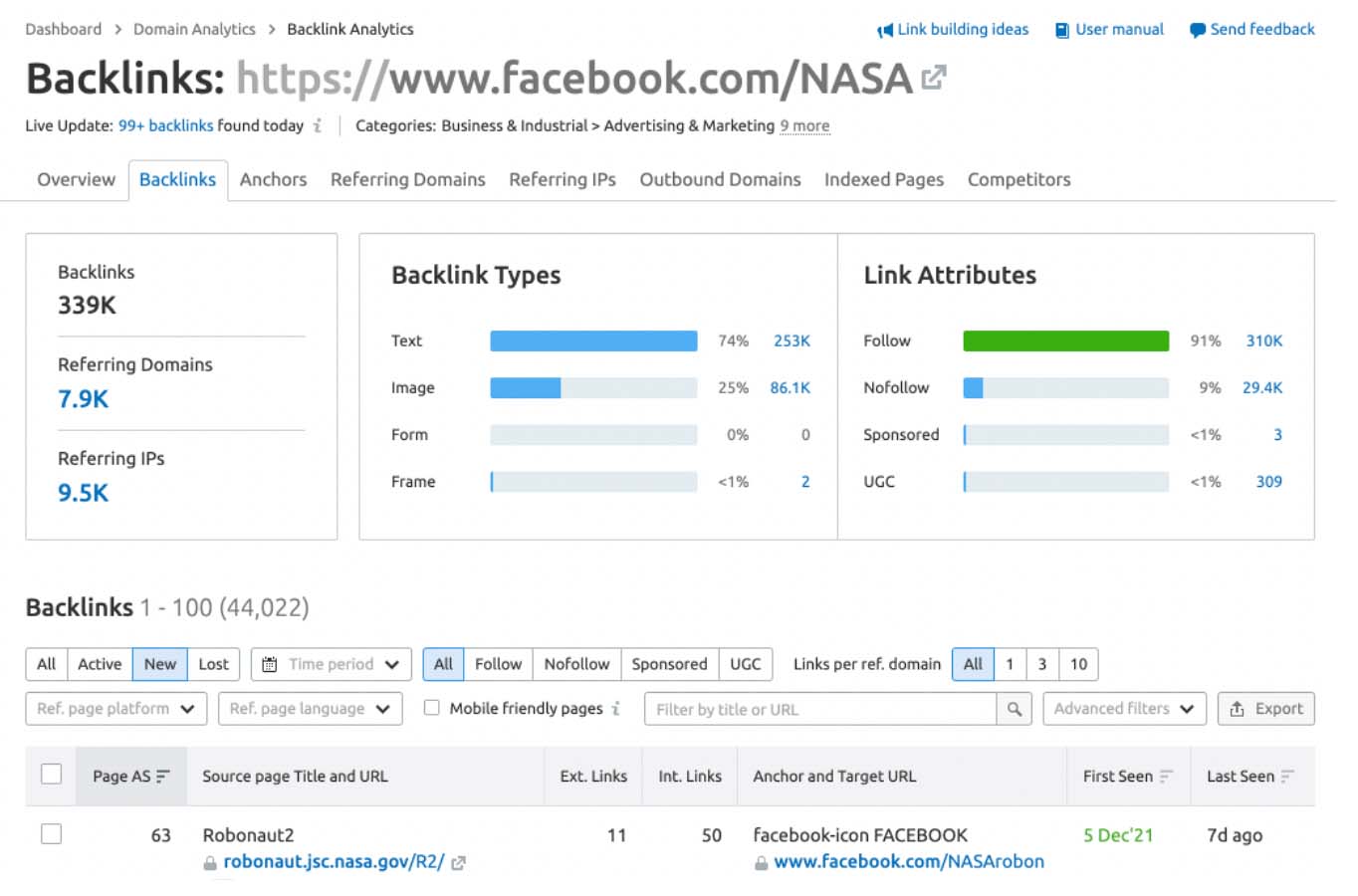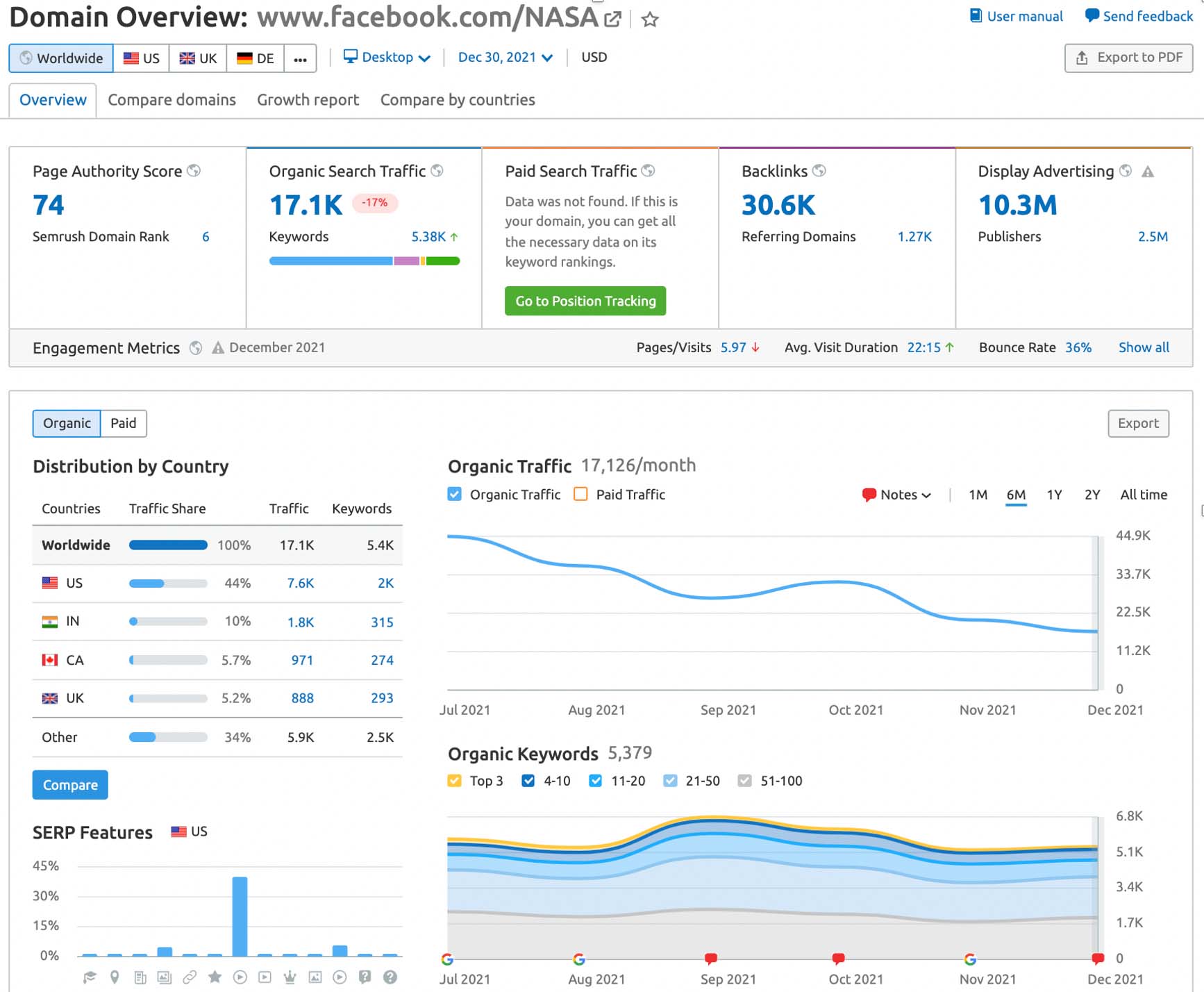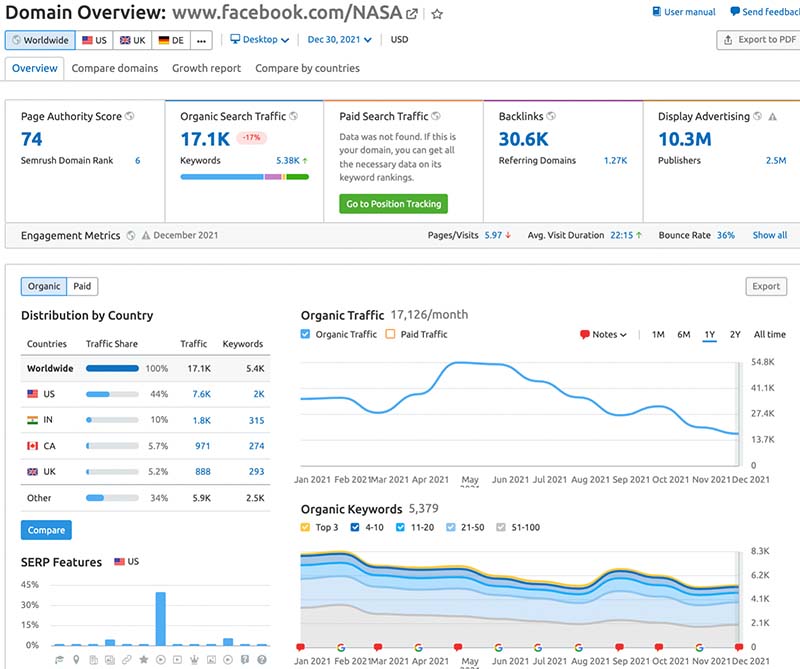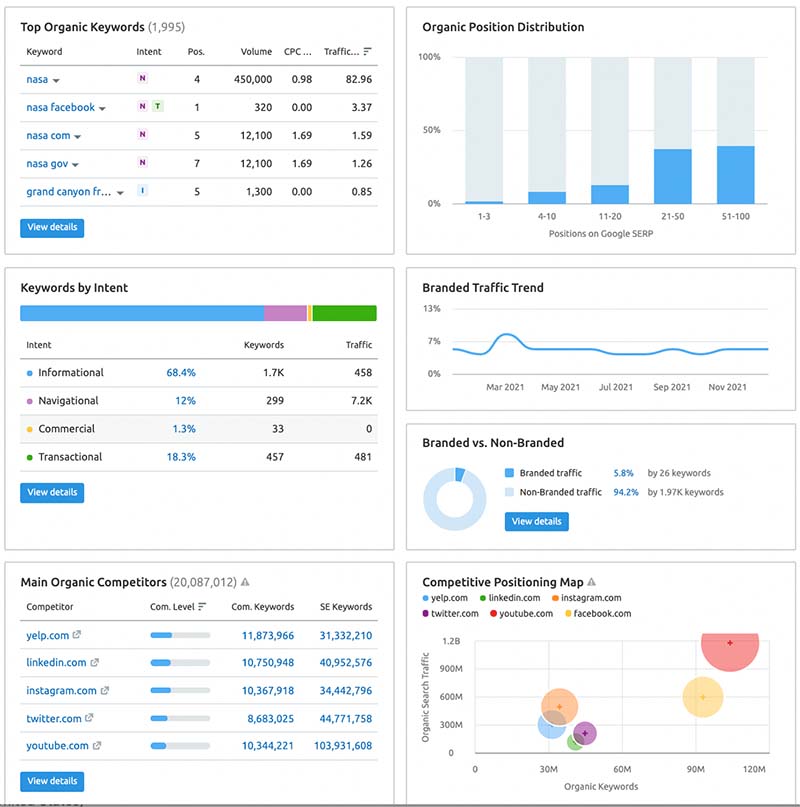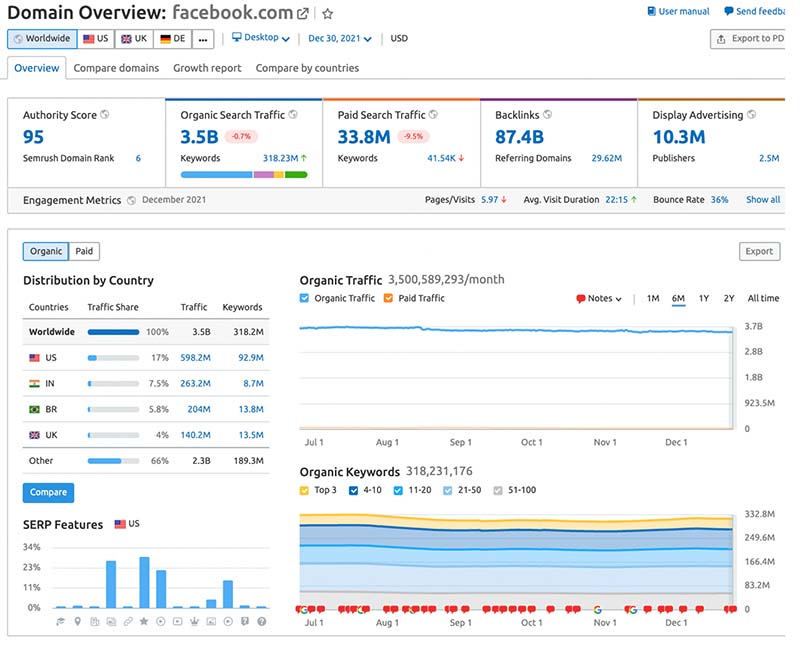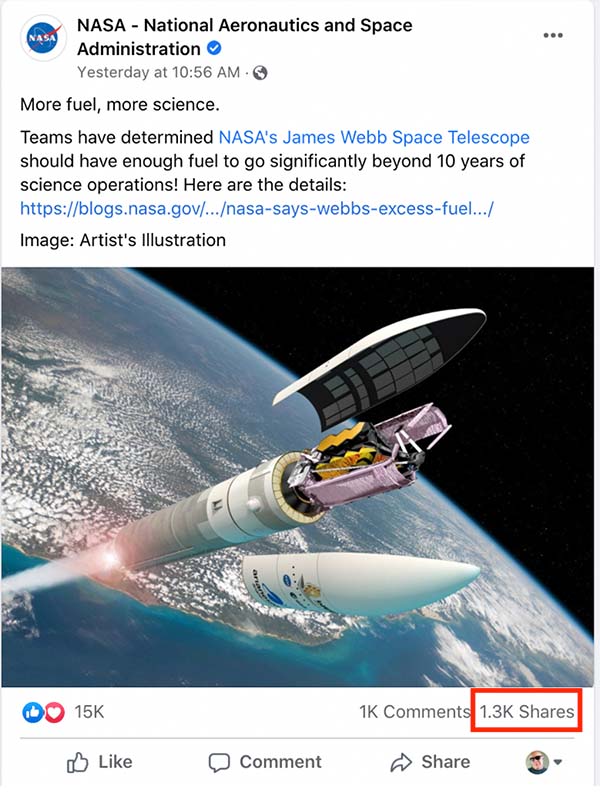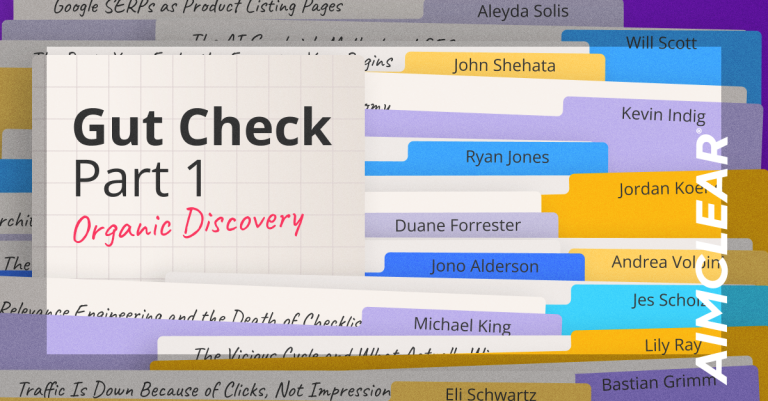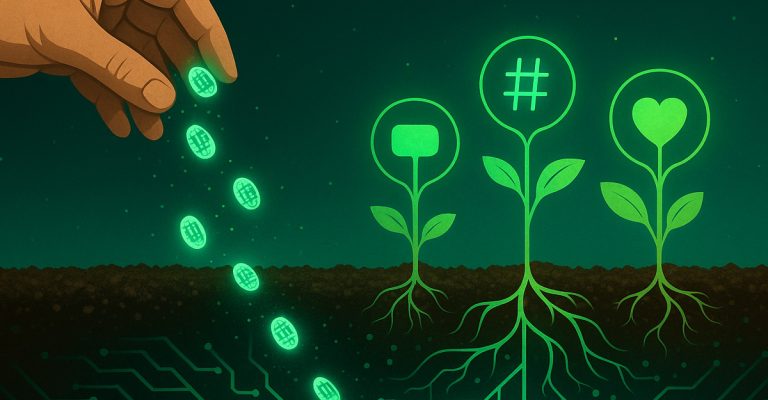A Facebook Page still sending significant free traffic to external destinations without requiring ads is a goose laying golden eggs. But, will the free traffic last?
This article offers criteria to help evaluate if traffic to your external content from Facebook is future-proof or threatened by Facebook and other algorithmic changes which may occur. Our thinking is divided into two major pathways, both which contribute to how users find your Facebook page- obviously prerequisite to clicking through from a post to a website. The pathways are Facebook Page discovery from outside of Facebook and Facebook Page discovery from inside of Facebook. We’ll also share classic correlations which may predict continuing success…or not.
If you’re here for our input as to what type of Facebook content has viral legs and future of the organic algorithm, go ahead and skip to the second Facebook Page discovery pathway, “Facebook Page discovery from inside of Facebook.” If you’re a search geek interested in how free traffic sent from Facebook pages is related to organic SERPs, read on.
Traffic from Facebook Pages has been an endangered species since August, 2011- about 10 months before FB’s infamous IPO. It made sense pre-IPO that Facebook changed the game and force marketers, previously getting tons of free traffic, to require payment for the same traffic via ads. Sometimes Facebook paid organic traffic performed even better because audience targeting focused reach. In some cases, content amplification still works today.
Since 2011, Facebook has greatly depreciated the propensity of pages to send external traffic, with some exceptions. AIMCLEAR has examined both sides of the coin, the traffic haves and have-nots, as part of our integrated audits for years. Brand and publication marketers we know still receiving Facebook Page traffic have been waiting for the other shoe to drop, wondering why their page posts still send website traffic, while everyone else’s traffic tanked, and wondering if clicks to external content will last.
Facebook Page Discovery From OUTSIDE of Facebook
For a Facebook Page to generate traffic to a website the FB Page must be discoverable in the first place. Marketers we speak with usually think of page reach originating within Facebook itself. (Again, we’ll explore Facebook’s internal reach algorithm and outbound clicks correlation later in this article.)
However, internal Facebook algorithmic reach is not the only pathway by which users discover Facebook pages and posts. Social pages themselves receive oft-overlooked traffic from third other sources including search engine results pages (SERPs), link referral clicks from third-party sites, and untraceable dark channels like DM and email. Keeping that in mind, subjecting your Facebook Page to an evaluation more akin to a third-party data driven SEO audit can yield valuable perspective and even predict the future.
Inbound links to a Facebook Page bring two main nodes of value: potential referral traffic and SEO benefits. Check the inbound link profile, traffic, keyword distribution, and other metrics for a Facebook Page using the tool of your choice. A Facebook page plush with amazing links and getting new links from powerful websites is safer from FB internal reach-busting algorithm updates because the page is more likely to receive referral traffic from external sites. The page and its posts are also more likely to rank in SERPs and receive traffic for brand and non-brand keywords.
Study a Facebook Page as if it were any other organic website to gain fantastic insight as to how the page is performing organically outside of Facebook and how that performance is trending. Here’s a Backlinks Report for NASA’s Facebook Page using Semrush. NASA’s Facebook Page, understandably, has a lot of links. (Disclosure: Semrush is an AIMCLEAR client)
However NASA’s Facebook Page has had a decline in organic search performance over the last 6 months. That’s not a good sign or, at best, a correction.
As with any organic search performance audit, make sure to look at different time windows for more context. The next report shows a one-year window. Now we can understand the performance of NASA’s Facebook page in Google SERPs with the most recent 6 month decline in context with the prior peak. Less search performance means less traffic to the Facebook Page. Less traffic to the FB Page may mean less click through traffic from posts. Later in this article we’ll discuss potential correlations from search traffic to free Facebook traffic to external destinations.
Additional third-party data keyword analysis can bring more perspective to why a Facebook Page succeeds (or not) in the SERPs). Here is a keyword report for NASA’s Facebook page for this year. Check out this report for your FB Page and have a look at the long mid and long tails.
Just remember that for a Facebook Page to send traffic to your website, users must discover the Facebook Page first. Often organic SERPs and inbound links are.key components to the external discoverability of a Facebook Page and there is much more data available on the nuts and bolts of reach outside of Facebook.
To estimate the effect of external reach on Facebook Page referrals, try these correlations:
- Third party data estimates of traffic from search to the FB page / traffic from that Facebook page to your site. Segment the correlation by brand and non-brand keywords. And, yes, you can optimize your Facebook Page and posts for non-brand keywords organic traffic.
- Include gain and loss of high-quality inbound links to the Facebook Page in an algorithm with the previous bullet point to estimate the effect of link referral traffic to the FB page and thereby your site.
Google seemingly remains somewhat sweet on Facebook in the SERPs, perhaps because users respond well, and some Facebook pages have value. Here is a Domain Overview for all of Facebook covering the last 6 months. This report shows data for the entire Facebook site in organic search and provides insight as to the authority Google gives Facebook overall. For fun, compare this to other social channels.
However, the all-time FB Domain Overview window may portend the start of something ominous if Facebook pages are your jam. Facebook page reach must come from somewhere and it’s not likely to be FB giving up ad revenue. So, diminishing organic search performance is of concern.
Facebook Page Discovery From INSIDE of Facebook
There are various opinions as to what qualities of a Facebook page cause reach inside of Facebook. Again, for a Facebook page to generate traffic, it must first garner eyeballs, aka reach. Facebook gives us precious little data to explain organic propagation of Facebook Page, other than selling ads. Here are classic screening criteria for the internal performance of a Facebook page.
Why does the content itself generate engagement, traffic, or both? Will that type of content be allowed to propagate moving forward? These are common content types that achieve virility which triggers reach:
- Extraordinary pictures or video thumbnails
- Valuable, Facebook-only content and editorial
- Providing the most succinct source to consumer an entire publication at a single glance
- Discounts, sales, unique offers, timed commercial releases
- Controversy, politics, crucial information, algorithm engaging disinformation
- Angry, hateful, loving, and other emotional content
- Short, crisp, colloquial, non-commercial content
- Incredulous, mind-bending, believe it or not content
- Memes, parodies, humor, or satire
- Reviews, insight, data
- Value by curation, roundups, summaries
- Religion, challenging beliefs, saying the 800LB gorilla
- News jacking, leaning on Trends
- Sexuality and sexual overtone
- Grass roots organization, from mild to wild
- Pop culture themes
Facebook’s organic algorithm is in societal hot soup around the world. As a result, some say that certain types of content may be diminished in their propensity to drive reach. Look at what type of content is driving engagement and decide for yourself if that content will be allowed to propagate in the future and what will be banned. Don’t assume any type of content is sacred and will last forever. You be the judge of whether the content on your Facebook Page currently driving traffic to an external site is content that will remain immortal in Facebook.
Is there a high degree peer to peer of sharing?
Engagement emotions (likes, loves, sad, mad, etc.) are great and can often be correlated to external traffic. However, engagement emotions don’t always mean that traffic will follow. Our correlation data suggests that sharing results in more outbound traffic than engagement emotions. Sharing also seems to drive Facebook’s internal distribution algorithm. For an interesting correlation study, try calculating:
- FB post internal shares to external site traffic
- Engagement emotions to external site traffic
- An algorithm mashing up FB post internal shares and engagement emotions to external traffic
How are assumed key Facebook reach metrics trending?
Most marketer believe that comments, engagement emotions, shares, and other data contribute to Facebook’s internal organic reach. Look at trends by graphing them over time and against external traffic. Make sure to zoom in and out on various windows of time for fuller context. If any of the key metrics are consistently trending downwards, that may be of concern long term.
Free traffic from any Internet channel has never been a safe bet. Usually once a channel cracks the code to send users for free to a third-party website, the next goal is for the channel to monetize by charging for the same traffic.
However, there are exceptions.
Social media channels walk a fine line of giving users what they want and need socially, vs. the social channel staying in business. So far as evaluating the potential longevity of pages are a free traffic resource, keep in mind that for the page send traffic users have to see the page. Those eyeballs can come from various external and internal sources. Correlate potential drivers to the page itself with coveted site traffic and look for trends over various time windows.

